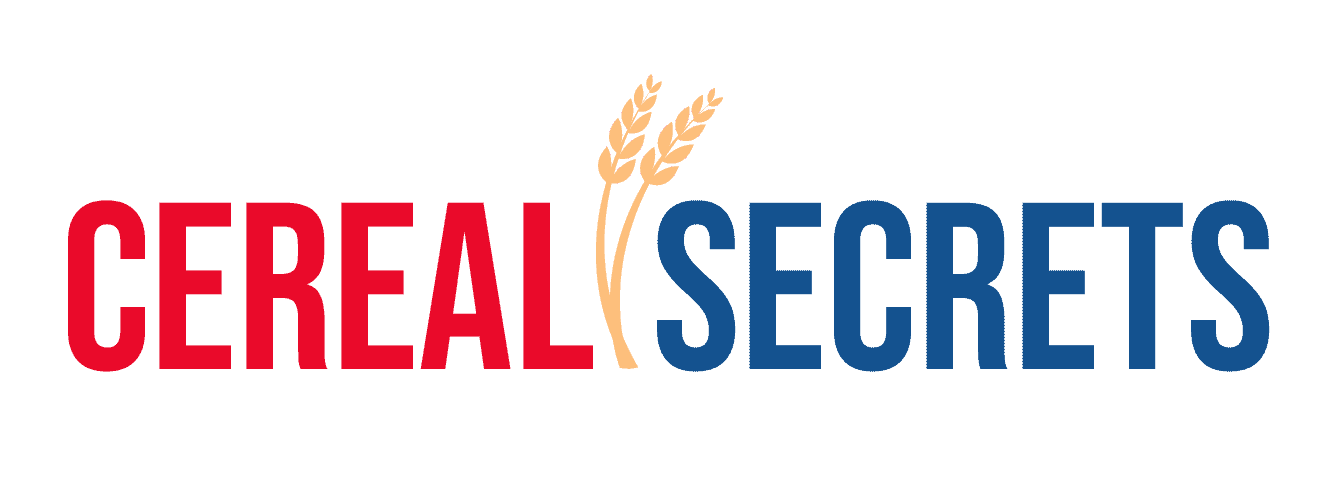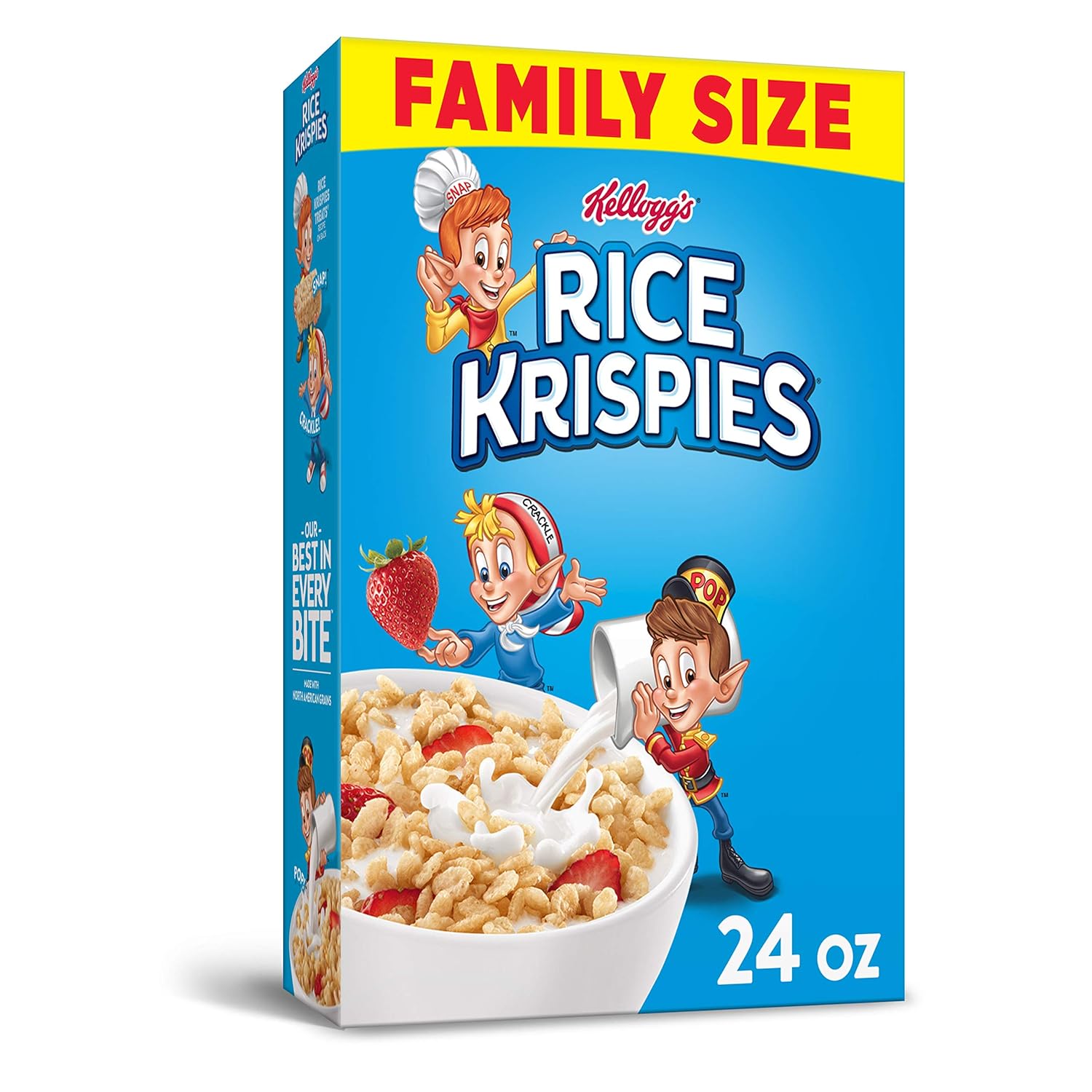There are a plethora of cereal brands on the market for consumers to choose from; however, some products continue to be chosen over most others due to a variety of reasons.
Some cereal brands may just taste better than other cereals to customers, and some brands might be cheaper or healthier than others.
If you are interested to find out, which types of cereal are preferred by most consumers, and how healthy they actually are, then read on.
Sections
General Mills Cinnamon Toast Crunch Cereal
General Mills Cinnamon Toast Crunch cereal was first produced in 1984 and has become the favorite cereal of many consumers in both America and around the rest of the world.
This cereal is often not just eaten with plain milk for breakfast anymore, as consumers are known to eat it plain, put it on top of ice cream, or use it to make cereal bars.
The versatility and delicious taste of General Mills Cinnamon Toast Crunch frosted flakes have made it one of the most popular breakfast cereals around, but just how healthy is it? And is it safe for vegans and those with Celiac disease to eat?
Ingredients & nutrition facts
One cup of General Mills Cinnamon Toast Crunch contains:
- Calories: 170
- Total fat: 4 g or 5% of Daily Value
- Cholesterol: 0mg
- Sodium: 230mg or 10% of Daily Value
- Potassium: 0mg or 0% of Daily Value
- Total carbohydrates: 33g or 12% of Daily Value
- Dietary fiber: 7% Daily Value
- Added sugar: 12g or 24% of Daily Value
- Protein: 2g
- Vitamin D: 2mcg or 10% of Daily Value
- Calcium: 130mg or 10% of Daily Value
- Iron: 3.6mg or 20% of Daily Value
The ingredients used to make Cinnamon Toast Crunch cereal are:
- Whole grain wheat
- Sugar
- Rice flour
- Canola oil
- Sunflower oil
- Fructose
- Maltodextrin
- Dextrose
- Salt
- Cinnamon
- Trisodium phosphate
- Soy lecithin
- Caramel color
- BHT
- Calcium ascorbate
- Iron
- Zinc
- Niacinamide
- Pyridoxine hydrochloride
- Thiamin mononitrate
- Palmitate
- Riboflavin
- Folic acid
- Vitamin B12
- Vitamin D3
Is it healthy?
While Cinnamon Toast Crunch is an extremely popular and tasty cereal, it is not very healthy.
One serving contains 24% of your recommended daily sugar intake, which is quite a lot for a single serving of cereal. Eating an excessive amount of sugar daily can cause weight gain and increase your risk of heart disease and type 2 diabetes.
Therefore, it is best to not eat this cereal every day or limit your daily sugar intake if you do decide to.
Is it gluten-free?
This whole-grain cereal contains whole wheat, which is exactly where gluten is derived from, so those with Celiac disease or gluten intolerance should steer clear.
Is it vegan?
Some people may consider Cinnamon Toast Crunch to be vegan; however, other vegans may choose not to eat it, as it contains Vitamin B12 and Vitamin D3.
Vitamin B12 is derived from lanolin, which is most commonly sourced from sheep’s wool, and Vitamin D3 is most commonly sourced from fatty fish meat and fish liver oil.
Is it keto?
This cereal will not be beneficial on a keto diet, as keto diets strictly forbid carbohydrates, which this cereal contains a lot of.
Protein & fiber content
Cinnamon Toast Crunch does not contain much fiber or protein, as it only has 2g of protein per serving and 2g of dietary fiber.
If you want to have a balanced diet, you will need to include more of both in your other meals to make up for the deficit.
Honey Nut Cheerios Cereal
Cheerios is an incredibly popular brand of American breakfast cereal and, therefore, a favorite cereal choice for many consumers.
Honey Nut Cheerios is one of the best-selling cereals on the market, and understandably so, as it offers a great taste and is made with real honey.
It states on the box that it is a heart-healthy cereal, but just how healthy is it really?
Ingredients & nutrition facts
One cup of Honey Nut Cheerios contains:
- Calories: 140
- Total fat: 2g or 3% of Daily Value
- Cholesterol: 0g
- Sodium: 210mg or 9% Daily Value
- Total carbohydrates: 30g or 11% of Daily Value
- Dietary fiber: 3g or 10% of Daily Value
- Added sugar: 12g or 24% of Daily Value
- Protein: 3g
- Vitamin D: 2mcg or 10% of Daily Value
- Calcium: 130mg or 10% of Daily Value
- Iron: 3.6mg or 20% of Daily Value
- Potassium: 150g or 4% of Daily Value
- Vitamin A: 10% of Daily Value
- Vitamin C: 10% of Daily Value
- Thiamin: 20% of Daily Value
- Riboflavin: 10% of Daily Value
- Niacin: 10% of Daily Value
- Vitamin B6: 20% of Daily Value
- Folate: 20% of Daily Value
- Vitamin B12: 20% of Daily Value
- Phosphorus: 8% of Daily Value
- Magnesium: 8% of Daily Value
- Zinc: 20% of Daily Value
The ingredients used to make Honey Nut Cheerios are:
- Whole grain oats
- Sugar
- Oat bran
- Corn starch
- Honey
- Brown sugar
- Syrup
- Salt
- Tripotassium phosphate
- Rice bran oil
- Canola oil
- Natural almond flavor
- Mixed tocopherols
Is it healthy?
While Honey Nut Cheerios Cereal does not contain any cholesterol, one serving of this cereal contains 24% of your recommended daily sugar intake, which is quite a lot.
Eating excessive amounts of sugar frequently can cause weight gain, increase your risk of heart disease, and contribute to the possibility of you contracting type 2 diabetes.
So this cereal is, in fact, not particularly heart-healthy.
Is it gluten-free?
Honey Nut Cheerios Cereal is gluten-free, as it is not made from whole grain wheat but oat pieces, so those with Celiac disease or gluten intolerance will be able to eat this cereal without any issues.
Is it vegan?
Some vegans may choose to eat this cereal depending on how strict they are, but it does contain honey, as stated on the box.
Honey is sourced from bees, so it is technically an animal product and, therefore, not vegan.
Is it keto?
Most popular cereals are loaded with carbohydrates, and Honey Nut Cheerios Cereal is no different.
Carbohydrates are specifically forbidden on keto diets, so this cereal should be avoided if you are on one.
Protein & fiber content
This cereal contains very little fiber and protein and is, therefore, not a great choice to eat for breakfast every day.
If you do decide to eat this breakfast cereal every day, then it would be a good idea to take a protein and fiber supplement or eat more of both throughout the day.
Kellogg’s Rice Krispies Cereal
Kellogg’s Rice Krispies Cereal is easily one of the most popular cereals in America and worldwide. The Rice Krispies name and the famous snap, crackle, pop jingle has become synonymous with anyone who has eaten breakfast cereals.
The cereal is also frequently used in baking, as people use it to make Rice Krispies treats, but just how healthy is it on its own?
Ingredients & nutrition facts
One and a half cups of Rice Krispies Cereal contains:
- Calories: 150
- Total fat: 0g
- Cholesterol: 0mg
- Sodium: 200mg or 9% of Daily Value
- Total carbohydrates: 36g or 13% of Daily Value
- Dietary fiber: 0g or 0% of Daily Value
- Added sugar: 4g or 8% of Daily Value
- Protein: 3g
- Vitamin D: 3mcg or 15% of Daily Value
- Calcium: 0mg
- Potassium: 30mg or 0% of Daily Value
- Thiamin: 30% of Daily Value
- Riboflavin: 30% of Daily Value
- Niacin: 30% of Daily Value
- Vitamin B6: 30% of Daily Value
- Folate: 200mcg or 50% of Daily Value
- Vitamin B12: 30% of Daily Value
The ingredients used to make Kellogg’s Rice Krispies are:
- Rice
- Sugar
- Salt
- Malt flavor
- Iron
- Niacinamide
- Vitamin B6
- Vitamin B2
- Vitamin B1
- Folic acid
- Vitamin D3
- Vitamin B12
Is it healthy?
Surprisingly, Rice Krispies Cereal is actually quite a healthy cereal. It does not contain as much sugar as other Kellogg’s cereals, like Frosted Flakes, and contains way less sugar than Lucky Charms Cereal.
The only unhealthy thing about this cereal is the fact that it does contain a decent amount of sodium, so those looking for a low sodium cereal should likely choose Kellogg’s Frosted Mini-Wheats instead.
Is it gluten-free?
Those with Celiac disease or gluten intolerance should have no problem eating this Kellogg’s cereal but should avoid Frosted flakes and Frosted Mini-Wheats cereals, as they both contain gluten.
Is it vegan?
This cereal is not entirely vegan, as it does contain small amounts of Vitamin B12 and Vitamin D3, which are generally both known to be sourced from animal products.
The small amount of these ingredients may cause some vegans to eat this cereal, but it will depend on how strict the vegan diet in question is.
Is it keto?
This cereal contains a large amount of carbohydrates and will, therefore, not be good for a keto diet.
Keto diets strictly forbid carbohydrates, so those on keto diets will likely need to find another breakfast food.
Protein & fiber content
This cereal contains no fiber and very little protein, so if you decide to eat it for breakfast, you will need to consume a lot of other foods high in both throughout the day to have a balanced diet.
Other Popular Cereals
These are only three of the most popular cereals, but there are many more cereals that American consumers love, such as Cap’n Crunch’s Crunch Berries cereal, Apple Jacks Cereal, and Kellogg’s Raisin Bran Cereal, Post Fruity Pebbles Cereal, and Cocoa Puffs. These cereals should all be considered when deciding what your next breakfast cereal will be.



